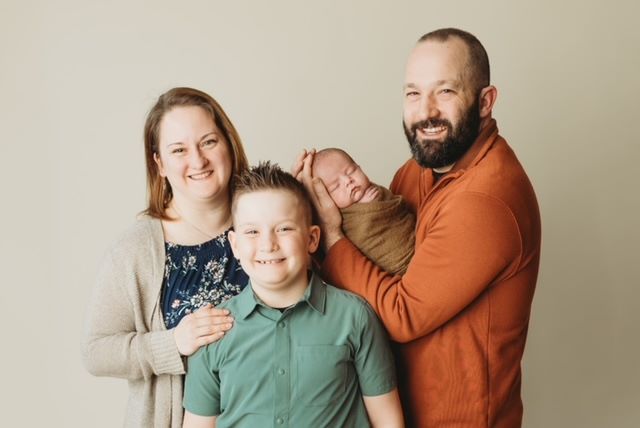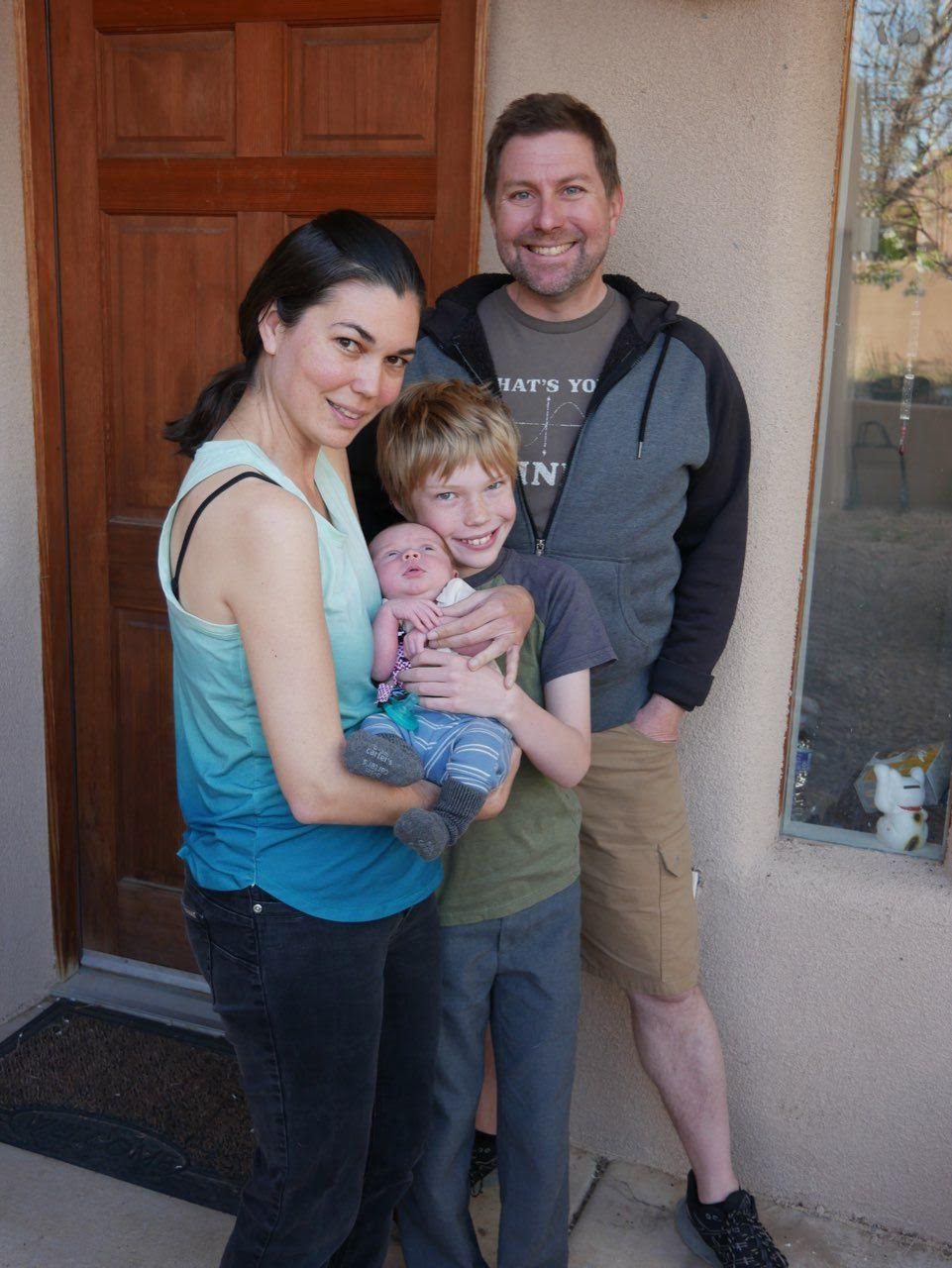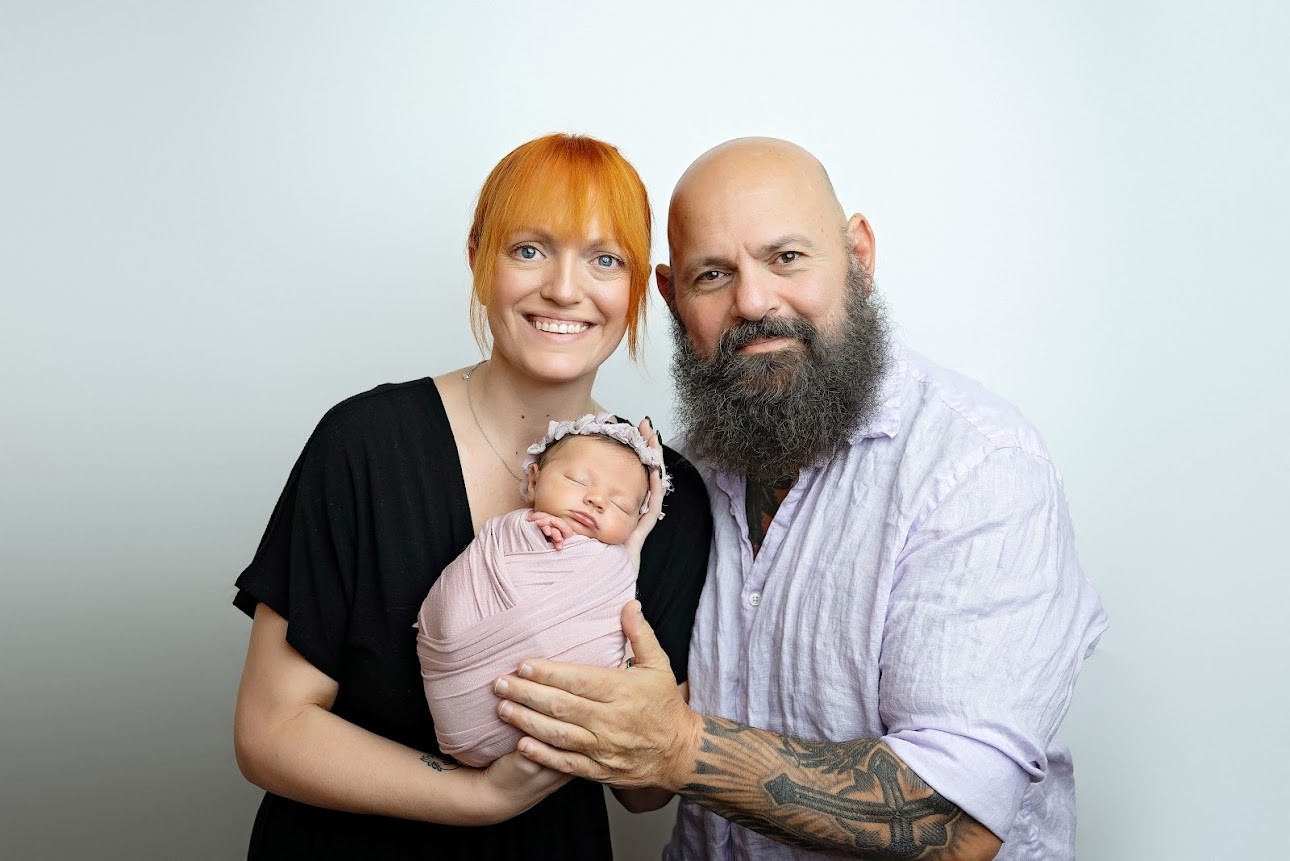When you receive an MRKH (Mayer-Rokitansky-Küster-Hauser syndrome) diagnosis, your first thoughts often focus on what seems impossible. Here's what we want you to know: motherhood is still within reach.
Though surrogacy my not be the plan you had for your growing family, it does allow you to bring your and your partner’s genetic child into the world, with a bit of help. MRKH may have been a disruptive bit of news, but it definitely doesn’t mean your chance at parenthood is over.
We understand the questions that come up first: Can you use your own eggs? What does the timeline look like? How do the costs break down? We'll walk you through each aspect, from medical procedures to finding the right surrogate match, so you can move forward with confidence.
MRKH Syndrome and Surrogacy: How Women Born Without a Uterus Can Have Biological Children
About 1 in 4,000-5,000 women are born with MRKH, where the uterus and upper vagina don't fully develop. However, in most cases, MRKH doesn’t affect your ovaries – you may be producing healthy eggs right now that can become your future children.
If you decide to pursue surrogacy, retrieving your healthy eggs is the first step. Here's how it works: A reproductive endocrinologist conducts a routine outpatient procedure to retrieve your eggs. In the laboratory, they're combined with sperm to create embryos – this is the IVF process, fertilization in-vitro. Up to this point, your surrogate is not involved at all; Every cell of your embryo carries your and your partner's DNA.
Once the healthy embryo is ready, they're transferred to your surrogate, who looks after them for the next 9 months.
< DOCUMENT_VARS_TIMELINE_JOURNEY />
Egg Retrieval and IVF Success Rates for MRKH Patients
Typically, your eggs are just as healthy and viable as any other woman your age. Before you begin, doctors run hormone tests and assess ovarian reserve through bloodwork and ultrasounds. The actual retrieval involves about two weeks of hormone injections followed by a 20-minute procedure under light sedation.
MRKH patients’ success rates align closely with those of other women the same age. Younger patients often produce 10-20 eggs per cycle, while women in their late thirties might retrieve 5-10 high-quality eggs. Some women do benefit from donor eggs, but for the majority of women with MRKH, using their own eggs leads to excellent outcomes.
The MRKH Surrogacy Process: From Embryo Creation to Birth
The process unfolds in four clear stages:
1. Embryo Creation Your reproductive endocrinologist coordinates your egg retrieval with your surrogate's cycle preparation. Most couples create several embryos during their initial IVF cycle. This gives you options for future siblings if desired. The medical component typically completes within 6-8 weeks.
2. Surrogate Matching We connect you with pre-screened women who understand MRKH and want to help couples become parents. These conversations happen naturally, with time to explore questions and establish comfort levels before proceeding.
3. Legal Framework Independent attorneys protect everyone's interests through detailed agreements about medical decisions, communication preferences, and parental rights. Most states recognize intended parents' rights from conception.
4. Pregnancy and Birth Your embryos are transferred to your surrogate's prepared uterus during a straightforward office procedure. Throughout pregnancy, you remain as involved as feels right for your family. This includes attending appointments, experiencing movements, and being present for delivery.
MRKH Surrogacy Timeline: 12-18 Months from Start to Baby
The complete journey typically spans 12-18 months from initial consultation to holding your baby. Some families complete their path more quickly, particularly when embryo creation proceeds smoothly and matching happens efficiently.

2 Months

1 Month

3 Weeks
Fast Surrogate Matching for MRKH Families: 2-4 Month Average Wait Times
While other agencies maintain lengthy waiting lists, our surrogate network means most families match within 1 - 4 months. We've built relationships with experienced surrogates who are ready to start when families are.
Pre-Screened Surrogate Network: Medical and Psychological Evaluations
Every woman in our program completes thorough screening before joining our network. This includes fertility assessments, medical clearances, psychological evaluations, and background checks. For women with MRKH, we work with surrogates who understand the medical aspects and appreciate the significance of what they're doing.
Surrogate Matching Criteria: Communication, Values, and Geographic Preferences
Communication styles that align, shared values about pregnancy care, and geographic preferences that work for everyone create successful partnerships. We facilitate these conversations naturally, helping both sides determine compatibility.
Our approach differs from standard agencies. Instead of assigning the next available surrogate, we help families find someone who feels right for their situation. This creates smoother experiences and better outcomes for everyone involved.
Surrogacy Costs for MRKH Patients: Breaking Down the Total Investment
Let's talk about the costs. Surrogacy typically costs between $100,000 - $200,000+, depending on your location, medical needs, and specific circumstances.
The major costs break down like this:
- Surrogate compensation: 35-40%
- Agency services: 15-25%
- Medical procedures (including IVF): 10-20%
- Legal representation: 5-10%
- Additional expenses: Maternity clothing, insurance premiums, delivery costs
Many women with MRKH find these numbers more manageable than initially expected. Compare this to multiple adoption attempts, which can involve similar costs with less predictable outcomes and no genetic connection.
Budget for the possibility of multiple embryo transfers, though many MRKH families achieve pregnancy on their first or second attempt.
Surrogacy Financing Options: Fertility Loans and Payment Plans
Money shouldn't prevent families from having the children they want. We partner with Sunfish and other fertility financing specialists to offer payment plans that spread costs over manageable monthly installments, making surrogacy accessible even without full upfront funding.
Fertility loans often provide better terms than general personal loans, with competitive rates and repayment periods designed for family-building expenses.
Alternative Funding: 401(k) Loans, Personal Loans, and Fertility Grants
Beyond traditional fertility loans, families often explore:
- 401(k) loans or hardship withdrawals (often at lower interest rates)
- Personal loans from banks or credit unions
- Family assistance or gifting programs
- Fundraising through medical expense platforms
- Grants from fertility organizations
Schedule a consultation with our financial counselors early in planning. They'll help explore every available option and choose the approach that fits your budget.
If you want this enough to be reading this article, there's likely a way to make it work financially. Our team has helped families with various budgets find their path forward.
MRKH Support Resources: Communities, Counseling, and Advocacy Organizations
The MRKH community offers incredible support, especially when it comes to surrogacy decisions. Women in online communities like r/MRKH share real experiences about working with surrogates, managing costs, and celebrating successful pregnancies.
Professional Support: Counseling Services and MRKH Connect Resources
Several types of support can help navigate this journey:
- Professional counseling services help process the emotional aspects of MRKH diagnosis and surrogacy planning
- Fertility clinic counseling addresses concerns about genetic connection, surrogate relationships, and preparing for parenthood after infertility
- MRKH organizations like MRKH Connect provide educational resources and connect families with experienced medical specialists
These groups maintain directories of fertility clinics and agencies with MRKH expertise.
American Surrogacy's MRKH Family Support Throughout Your Journey
Throughout their time with us, families are never alone. We know how unique and deeply personal the journey with MRKH can feel, and we’re here to listen, answer questions, and provide reassurance. Our hope is that every couple feels understood, supported, and confident as they make the decisions that are right for them.
Ready to Start Your MRKH Surrogacy Journey?
An MRKH diagnosis doesn't define your path to motherhood—it simply shows you which path to take. Surrogacy can transform what initially feels like a major hurdle into a clear, actionable plan for building your family.
What your consultation covers:
- Reviewing your medical history
- Discussing surrogate matching preferences
- Explaining our screening processes
- Outlining realistic timelines for your specific circumstances
You'll leave understanding exactly what comes next. You'll feel confident that surrogacy can help you become a parent sooner than you might expect.
MRKH & Surrogacy: The Bottom Line
The dream of having a biological child is attainable, even for people with MRKH. It’s valid to feel disappointment, worry, and even grieve the loss of personal fertility, yet motherhood is still within reach. The path may look different than originally imagined, but the destination remains the same.
MRKH and Surrogacy FAQs: Success Rates, Genetics, Timeline, and Insurance Coverage
How successful is surrogacy for women with MRKH?
Success rates are excellent because MRKH doesn't affect egg quality or embryo development. Most MRKH families achieve pregnancy within 1-3 embryo transfers, with success depending on age, egg quality, and surrogate health.
Will my baby be genetically mine through surrogacy?
Yes. Using your eggs and your partner's (or donor) sperm means the baby is 100% genetically yours. The surrogate provides only the uterine environment for pregnancy.
How long does the surrogacy process take for MRKH patients?
Most families go from initial consultation to holding their baby within 12-18 months. This timeline can be shorter if embryo creation happens quickly or matching occurs efficiently.
Do I need to use donor eggs if I have MRKH?
Most women with MRKH use their own eggs successfully. Fertility specialists evaluate ovarian function through hormone testing and ultrasounds to confirm eggs are ready for IVF.
What legal protections exist for MRKH families using surrogacy?
Legal agreements establish parental rights from conception. Pre-birth orders ensure names appear directly on the birth certificate. Most states have clear legal frameworks supporting intended parents' rights in surrogacy arrangements.
Does insurance cover surrogacy for MRKH patients?
Coverage varies by plan and state. Some insurers now recognize surrogacy as medically necessary for conditions like MRKH. We help families understand their benefits and explore financing options for uncovered expenses.
Disclaimer: The information provided in this article is for educational and informational purposes only and is not intended as medical advice. American Surrogacy does not provide medical services and does not make clinical determinations regarding eligibility for fertility treatments or surrogacy. All medical evaluations and decisions should be made in partnership with licensed medical professionals.